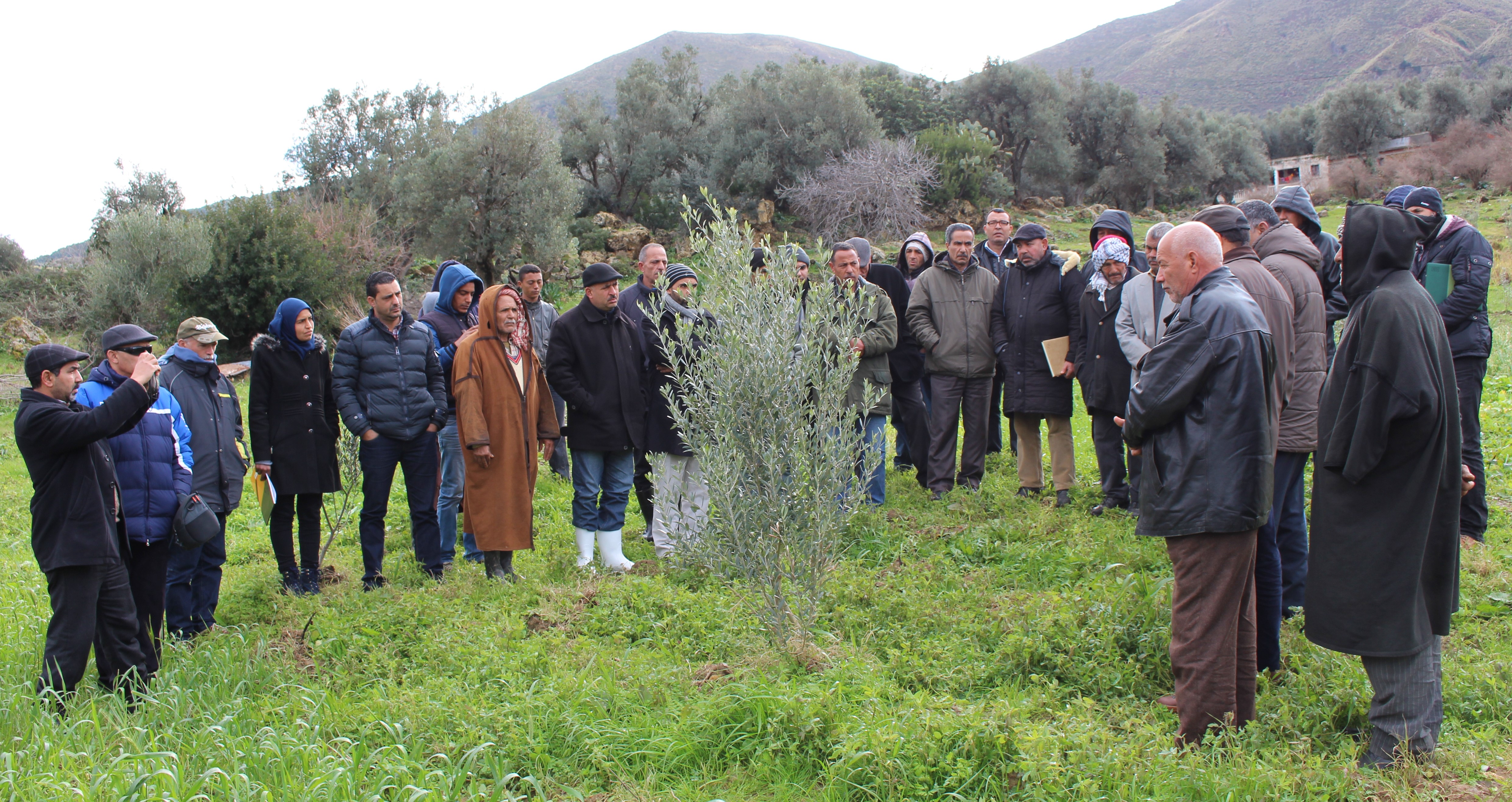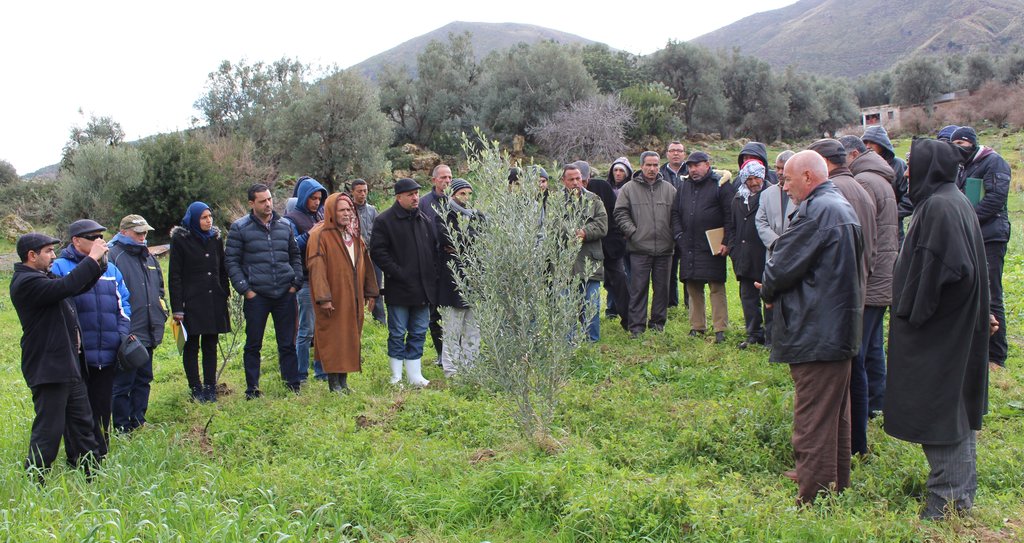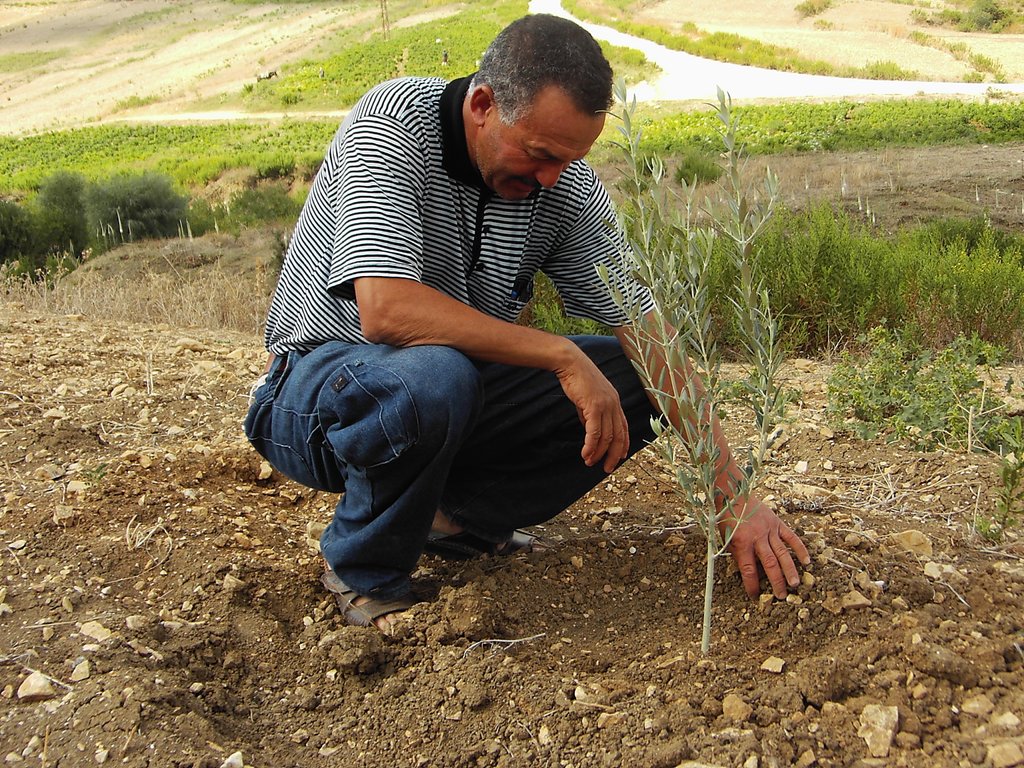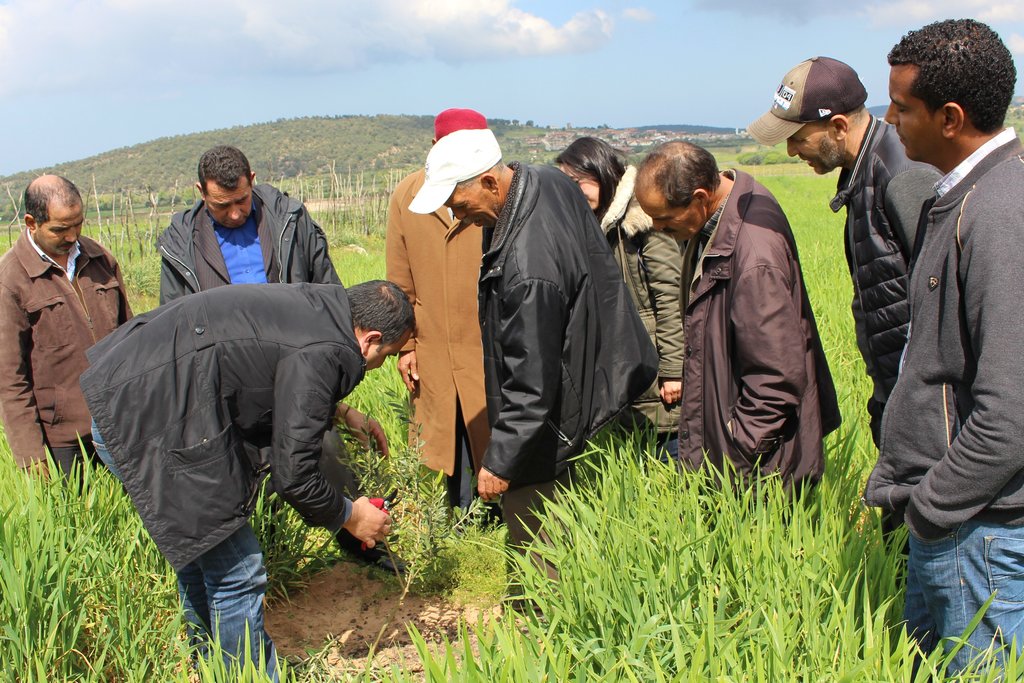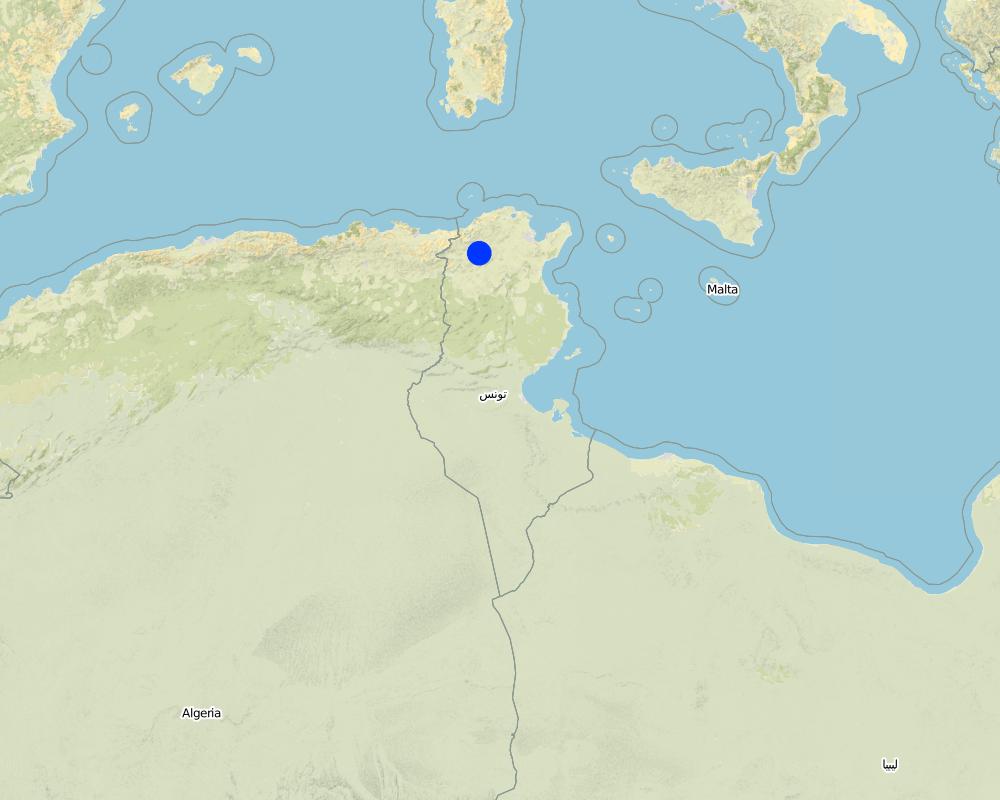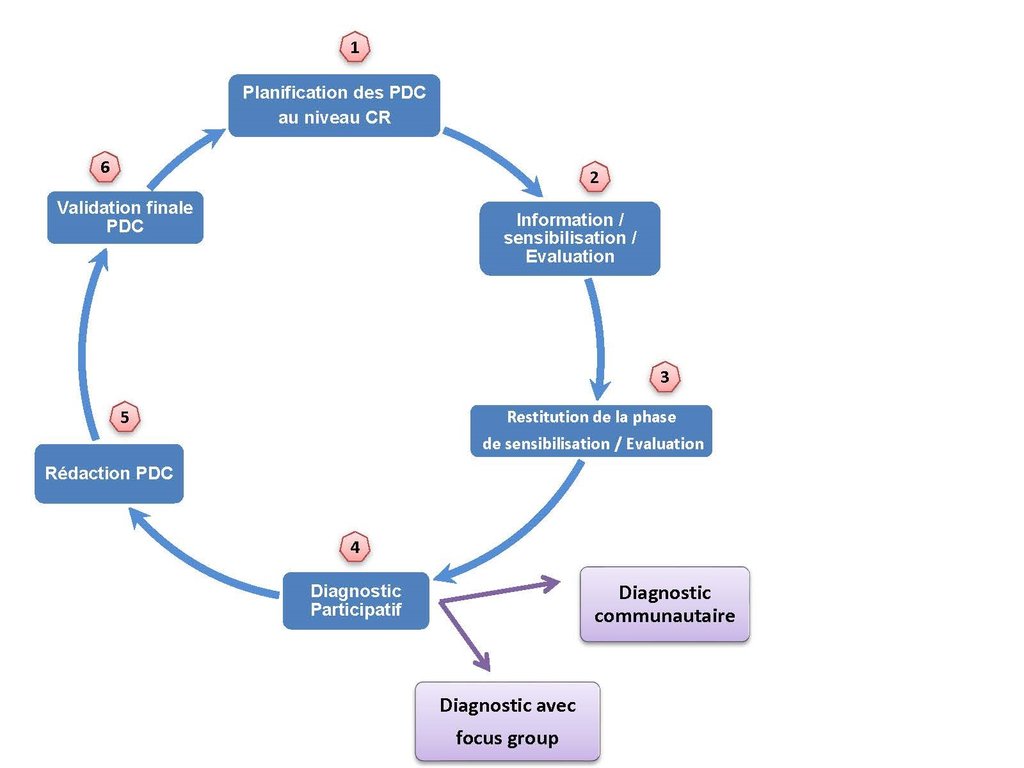Projet de développement des zones montagneuses du Nord Ouest Tunisien. [Tunisia]
- Creation:
- Update:
- Compiler: Donia Mühlematter
- Editor: Hichem Khemiri
- Reviewer: Donia Mühlematter
PDZMNO
approaches_3723 - Tunisia
- Full summary as PDF
- Full summary as PDF for print
- Full summary in the browser
- Full summary (unformatted)
- Projet de développement des zones montagneuses de Nord Ouest Tunisien.: May 28, 2018 (inactive)
- Projet de développement des zones montagneuses du Nord Ouest Tunisien.: May 30, 2018 (inactive)
- Projet de développement des zones montagneuses du Nord Ouest Tunisien.: May 30, 2018 (inactive)
- Projet de développement des zones montagneuses du Nord Ouest Tunisien.: June 7, 2018 (public)
View sections
Expand all Collapse all1. General information
1.2 Contact details of resource persons and institutions involved in the assessment and documentation of the Approach
Key resource person(s)
SLM specialist:
Khemiri Hichem
Office de Développement Sylvo Pastorale de Nord Ouest (ODESYPANO)
Tunisia
SLM specialist:
Messaoudi Ezzine
Office de Développement Sylvo Pastorale de Nord Ouest (ODESYPANO)
Avenue de l'Environnement - 9000 Bejà
Tunisia
Name of project which facilitated the documentation/ evaluation of the Approach (if relevant)
Decision Support for Mainstreaming and Scaling out Sustainable Land Management (GEF-FAO / DS-SLM)Name of the institution(s) which facilitated the documentation/ evaluation of the Approach (if relevant)
Office de Développement Sylvo-Pastoral du Nord-Ouest (ODESYPANO) - Tunisia1.3 Conditions regarding the use of data documented through WOCAT
The compiler and key resource person(s) accept the conditions regarding the use of data documented through WOCAT:
Yes
1.4 Reference(s) to Questionnaire(s) on SLM Technologies
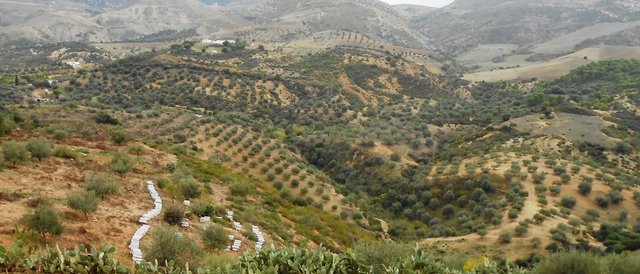
Le système d’Agroforesterie pour la protection des terres … [Tunisia]
None
- Compiler: Donia Mühlematter
2. Description of the SLM Approach
2.1 Short description of the Approach
Le projet de développement des zones montagneuses de Nord Ouest Tunisien est mis en oeuvre par l'Office de développement sylvo-pastoral de Nord Ouest en adoptant une approche participative et intégrée afin de promouvoir le développement socio-économique et agro-écologique des zones montagneuses.
2.2 Detailed description of the Approach
Detailed description of the Approach:
Le projet de développement des zones montagneuses du Nord Ouest Tunisien est mise en œuvre par l'Office de développement sylvo-pastoral du Nord Ouest en adoptant une approche participative et intégré afin de promouvoir le développement socio- économique et agro-écologique des zones montagneuses.
Dans un environnement menacé par l'érosion, l'agroforesterie était adoptée comme une alternative qui a double rôles:
- Protection et fixation des sols.
- Production des espèces adaptées aux conditions édaphiques et climatiques de la région qui permet aux exploitants de diversifier leurs revenues.
L'approche consiste en une sensibilisation de la population de l'importance de l'espèce agroforestière, un diagnostic participatif, suivi d'une étude de faisabilité technique, sociale et économique. Ainsi que la participation de la population dans le suivi de la réalisation matérialisé par un contrat programme annuelle et une évaluation participative.
2.3 Photos of the Approach
2.5 Country/ region/ locations where the Approach has been applied
Country:
Tunisia
Region/ State/ Province:
Thibar - Béjà
Map
×2.6 Dates of initiation and termination of the Approach
Indicate year of initiation:
1987
If precise year is not known, indicate approximate date when the Approach was initiated:
10-50 years ago
2.7 Type of Approach
- project/ programme based
2.8 Main aims/ objectives of the Approach
Faire participer la population dans le processus de la prise de décision.
2.9 Conditions enabling or hindering implementation of the Technology/ Technologies applied under the Approach
social/ cultural/ religious norms and values
- enabling
Participation aux choix.
availability/ access to financial resources and services
- enabling
Action participative.
institutional setting
- enabling
Possibilité de regrouper les oléiculteurs.
collaboration/ coordination of actors
- enabling
Plus d'intervenants (partenariat).
legal framework (land tenure, land and water use rights)
- enabling
Terrain plus valorisé et propriété plus claire.
policies
- enabling
Fixation des bénéficiaires sur lieu et démocratie locale.
land governance (decision-making, implementation and enforcement)
- enabling
Surtout dans les terrains en division, prise de décisions.
knowledge about SLM, access to technical support
- enabling
Implication de la population aux choix stratégiques.
markets (to purchase inputs, sell products) and prices
- enabling
Diversification des revenus.
workload, availability of manpower
- enabling
Valorisation de la main d'oeuvre.
other
- enabling
La protection des terres contre l'érosion.
other
- enabling
Sensibilisation de la population pour une meilleur protection des resources naturels.
3. Participation and roles of stakeholders involved
3.1 Stakeholders involved in the Approach and their roles
- local land users/ local communities
Population.
- community-based organizations
Comités de développement, groupements ruraux.
- SLM specialists/ agricultural advisers
Équipe pluri-disciplinaires.
- researchers
Conventions de recherche.
- teachers/ school children/ students
PFE et Master.
- NGO
- private sector
- local government
- national government (planners, decision-makers)
- international organization
Bailleurs de fonds (Banque mondiale).
3.2 Involvement of local land users/ local communities in the different phases of the Approach
| Involvement of local land users/ local communities | Specify who was involved and describe activities | |
|---|---|---|
| initiation/ motivation | none | C'était l'approche interventionnelle. |
| planning | interactive | Élaboration de plan de développement communautaire. |
| implementation | interactive | Participation, contrat programme annuel. |
| monitoring/ evaluation | interactive | Évaluation participative. |
3.3 Flow chart (if available)
3.4 Decision-making on the selection of SLM Technology/ Technologies
Specify who decided on the selection of the Technology/ Technologies to be implemented:
- all relevant actors, as part of a participatory approach
Explain:
Besoin exprimé par la population et choix confirmé par les techniciens.
Specify on what basis decisions were made:
- evaluation of well-documented SLM knowledge (evidence-based decision-making)
4. Technical support, capacity building, and knowledge management
4.1 Capacity building/ training
Was training provided to land users/ other stakeholders?
Yes
Specify who was trained:
- land users
- field staff/ advisers
Form of training:
- on-the-job
- farmer-to-farmer
- demonstration areas
- public meetings
Subjects covered:
Les techniques du communication, gestion des conflits...
4.2 Advisory service
Do land users have access to an advisory service?
Yes
Specify whether advisory service is provided:
- on land users' fields
- at permanent centres
Describe/ comments:
L'approche conseil (conseil de proximité).
4.3 Institution strengthening (organizational development)
Have institutions been established or strengthened through the Approach?
- yes, greatly
Specify the level(s) at which institutions have been strengthened or established:
- local
- regional
Specify type of support:
- capacity building/ training
- equipment
Give further details:
Matériel rouleau, matériel informatique.
4.4 Monitoring and evaluation
Is monitoring and evaluation part of the Approach?
Yes
If yes, is this documentation intended to be used for monitoring and evaluation?
No
4.5 Research
Was research part of the Approach?
Yes
Specify topics:
- sociology
- ecology
- technology
- socio-économique.
5. Financing and external material support
5.1 Annual budget for the SLM component of the Approach
If precise annual budget is not known, indicate range:
- 10,000-100,000
5.2 Financial/ material support provided to land users
Did land users receive financial/ material support for implementing the Technology/ Technologies?
Yes
If yes, specify type(s) of support, conditions, and provider(s):
Prise en charge du projet des différentes dépenses relative à la base en oeuvre de la technologie (trouaison, plants, frais de plantation, confection des cuvettes et irrigation).
Actuellement, le projet ne fournit que les plants et les autres dépenses prises en charge par les bénéficiares.
5.3 Subsidies for specific inputs (including labour)
If labour by land users was a substantial input, was it:
- voluntary
5.4 Credit
Was credit provided under the Approach for SLM activities?
No
5.5 Other incentives or instruments
Were other incentives or instruments used to promote implementation of SLM Technologies?
No
6. Impact analysis and concluding statements
6.1 Impacts of the Approach
Did the Approach empower local land users, improve stakeholder participation?
- No
- Yes, little
- Yes, moderately
- Yes, greatly
Le bénéficiaire est devenu participatif.
Did the Approach enable evidence-based decision-making?
- No
- Yes, little
- Yes, moderately
- Yes, greatly
Le choix est concerté.
Did the Approach help land users to implement and maintain SLM Technologies?
- No
- Yes, little
- Yes, moderately
- Yes, greatly
Rassenti d'utilité de la technologie en terme de production.
Plus qu'un intervenant pour la technologie.
Did the Approach improve knowledge and capacities of land users to implement SLM?
- No
- Yes, little
- Yes, moderately
- Yes, greatly
Devenu conscient du role protective de la technologie.
Did the Approach improve knowledge and capacities of other stakeholders?
- No
- Yes, little
- Yes, moderately
- Yes, greatly
Des travaux de recherche ont renforcé les connaissances en GDT.
Did the Approach build/ strengthen institutions, collaboration between stakeholders?
- No
- Yes, little
- Yes, moderately
- Yes, greatly
Échange d'informations aux bénéficaires.
Did the Approach empower socially and economically disadvantaged groups?
- No
- Yes, little
- Yes, moderately
- Yes, greatly
Source de revenu importante et espèce stratégique.
Did the Approach lead to improved food security/ improved nutrition?
- No
- Yes, little
- Yes, moderately
- Yes, greatly
Amélioration des revenus familiaux.
Occupation de la main d'oeuvre familiale.
6.2 Main motivation of land users to implement SLM
- reduced land degradation
Terrains de plantation dans les sites à haut risque d'érosion.
6.3 Sustainability of Approach activities
Can the land users sustain what has been implemented through the Approach (without external support)?
- yes
If yes, describe how:
Les bénéficiares de la technologie ont participé ä des sessions de formation en méthodologie d'agroforesterie.
6.4 Strengths/ advantages of the Approach
| Strengths/ advantages/ opportunities in the land user’s view |
|---|
| Participation - Transparence - Équité - Décision concerté - choix concerté. |
| Strengths/ advantages/ opportunities in the compiler’s or other key resource person’s view |
|---|
| Modèle pour un développement durable. |
| Permet la perrénisation des acquis. |
| Renforcé les capacités techniques et méthodologiques des équipes multi-disciplinaires. |
| Conscience des agents et des exploitants de la nécissité de faire des choix concertés. |
6.5 Weaknesses/ disadvantages of the Approach and ways of overcoming them
| Weaknesses/ disadvantages/ risks in the land user’s view | How can they be overcome? |
|---|---|
| Beaucoup des vas et viens et des réunions. | Diminuer les étapes de l'approche. |
| Le travail en équipe et parfois source de conflit d'interet. | Nécéssité de commencer par l'organisation de la population. |
| Weaknesses/ disadvantages/ risks in the compiler’s or other key resource person’s view | How can they be overcome? |
|---|---|
| Lourde méthodologie. | Comprimer certains étapes. |
7. References and links
7.1 Methods/ sources of information
- field visits, field surveys
1
- interviews with land users
1
- interviews with SLM specialists/ experts
Plusieurs spécialistes de l'ODESYPANO.
7.3 Links to relevant information which is available online
Title/ description:
Approche du Développement Rural et Participatif dans le Nord-Ouest Tunisien: Mise en Œuvre et Enseignements
URL:
http://newmedit.iamb.it/share/img_new_medit_articoli/297_17barhoumi.pdf
Title/ description:
Bilan des expériences en planification locale participative : élaboration de plans de développement participatif communautaire
URL:
http://www.environnement.gov.tn/PICC/wp-content/uploads/Bilan-des-expériences-en-planification-locale-participative.pdf
Links and modules
Expand all Collapse allLinks

Le système d’Agroforesterie pour la protection des terres … [Tunisia]
None
- Compiler: Donia Mühlematter
Modules
No modules


